10 Best Herbal Capsules For Earache

Herbal capsules for earache are natural remedies that utilize plant-based ingredients to alleviate pain and reduce inflammation in the ear.
Common herbs used in these capsules include garlic, ginger, and echinacea, which are known for their antimicrobial and anti-inflammatory properties. These capsules are often preferred by individuals seeking alternative or complementary treatments to conventional pain medications. They are typically easy to take, convenient, and may offer a gentler approach to managing ear discomfort.
However, it is important to consult with a healthcare professional before using herbal capsules, especially if you have underlying health conditions or are taking other medications.
Table of Contents
- 1. Ginger (Zingiber officinale)
- 2. Yarrow (Achillea millefolium)
- 3. Salvia (Salvia officinalis)
- 4. Chaste tree (Vitex agnus-castus)
- 5. St. john's wort (Hypericum perforatum)
- 6. German chamomile (Chamomilla recutita)
- 7. English lavender (Lavandula angustifolia)
- 8. Turmeric (Curcuma longa)
- 9. Garlic (Allium sativum)
- 10. Black pepper (Piper nigrum)
1. Ginger (Zingiber officinale)

Zingiber officinale, commonly known as ginger, has been traditionally used for its anti-inflammatory and analgesic properties, making it a potential natural remedy for earache.
When formulated into herbal capsules, ginger may help reduce inflammation and pain associated with conditions like otitis media, which is a common cause of earache. The active compounds in ginger, such as gingerol and shogaol, are believed to inhibit inflammatory pathways in the body, providing relief from discomfort. While some studies suggest ginger's efficacy in managing pain, more clinical research is needed to confirm its effectiveness specifically for earache.
As with any herbal supplement, it is advisable to consult a healthcare professional before using ginger capsules for earache, especially if there are underlying health conditions or if symptoms persist.
2. Yarrow (Achillea millefolium)
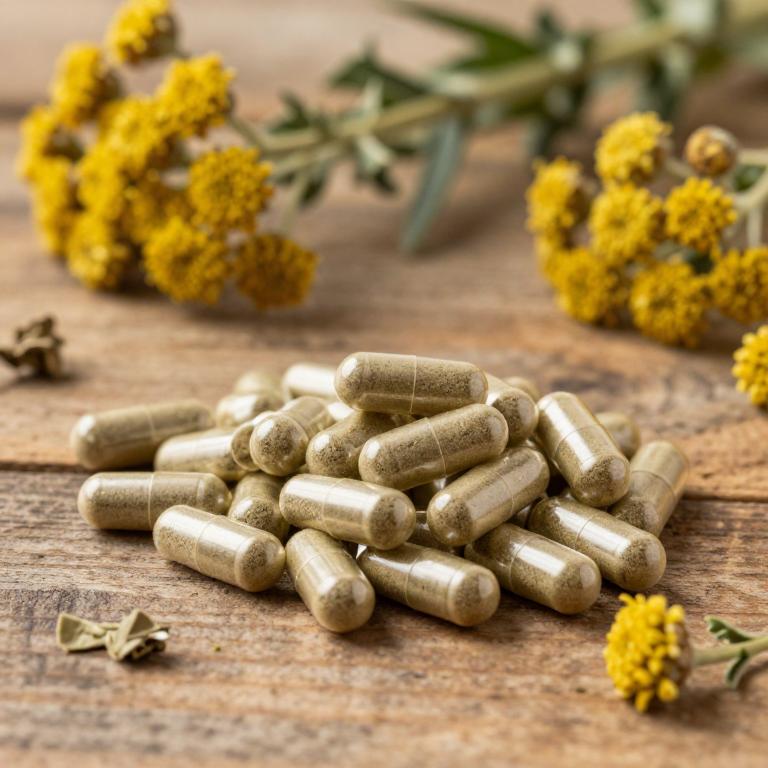
Achillea millefolium, commonly known as yarrow, has been traditionally used in herbal medicine for its anti-inflammatory and astringent properties.
When formulated into capsules, it may offer a convenient and concentrated form of the herb for addressing earache, particularly when caused by inflammation or infection. The active compounds in yarrow, such as flavonoids and essential oils, are believed to help reduce swelling and pain in the ear canal. However, it is important to consult with a healthcare professional before using yarrow capsules for earache, especially if there is an existing ear infection or if the individual is taking other medications.
While some studies suggest potential benefits, more research is needed to fully establish its efficacy and safety for this specific use.
3. Salvia (Salvia officinalis)
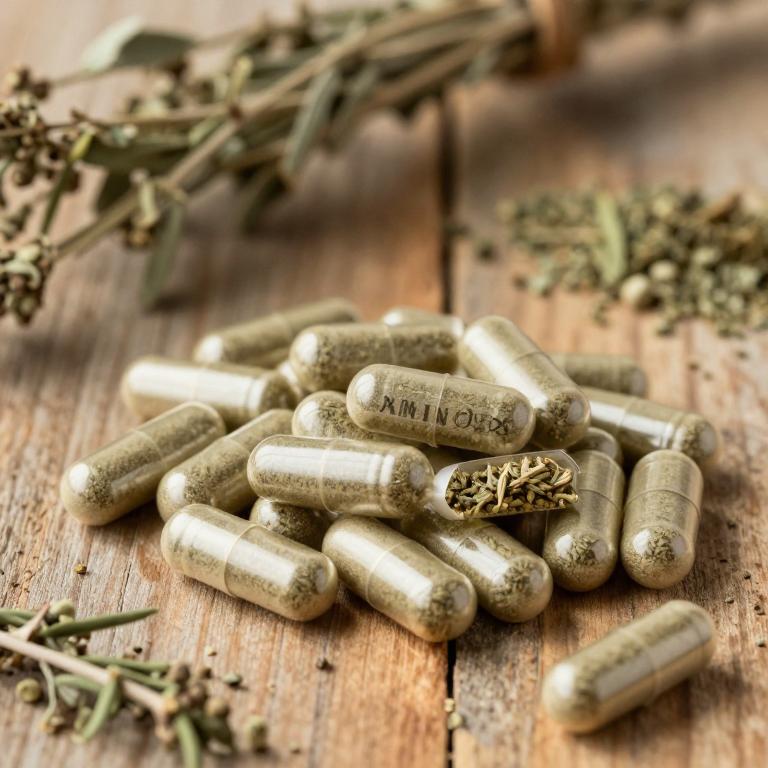
Salvia officinalis, commonly known as sage, has been traditionally used for its soothing and anti-inflammatory properties, making it a potential natural remedy for earache.
When formulated into herbal capsules, salvia officinalis may help reduce inflammation and pain in the ear canal, offering relief from discomfort caused by infections or irritations. These capsules are typically made from standardized extracts of the plant, ensuring consistent potency and efficacy. While research on its specific effects for earache is limited, many people use sage-based supplements as part of a holistic approach to managing ear discomfort.
As with any herbal remedy, it is advisable to consult a healthcare professional before use, especially if symptoms persist or worsen.
4. Chaste tree (Vitex agnus-castus)

Vitex agnus-castus, commonly known as chasteberry, is a traditional herbal remedy that has been used for centuries in various medicinal practices.
While it is often associated with hormonal balance and menstrual health, some studies suggest it may have anti-inflammatory and analgesic properties that could potentially offer relief for certain types of earache. However, it is important to note that there is limited scientific evidence directly supporting its effectiveness for ear pain, and its use for this specific condition remains largely anecdotal. As with any herbal supplement, it is advisable to consult a healthcare professional before use, especially if the earache is persistent or accompanied by other symptoms.
Despite its historical use, vitex agnus-castus should not be considered a substitute for conventional medical treatment of ear infections or severe ear pain.
5. St. john's wort (Hypericum perforatum)

Hypericum perforatum, commonly known as St. John's Wort, is traditionally used in herbal medicine for its potential anti-inflammatory and analgesic properties.
While it is well-known for its use in treating mild to moderate depression, some studies suggest it may also have applications in alleviating earache due to its ability to reduce inflammation and pain. Herbal capsules containing Hypericum perforatum are often used as a natural alternative to conventional pain relievers, though their efficacy for earache specifically requires further scientific validation. It is important to note that St. John's Wort can interact with various medications, so consulting a healthcare provider before use is recommended.
Despite its popularity, the use of Hypericum perforatum for earache should be approached with caution and in conjunction with professional medical advice.
6. German chamomile (Chamomilla recutita)
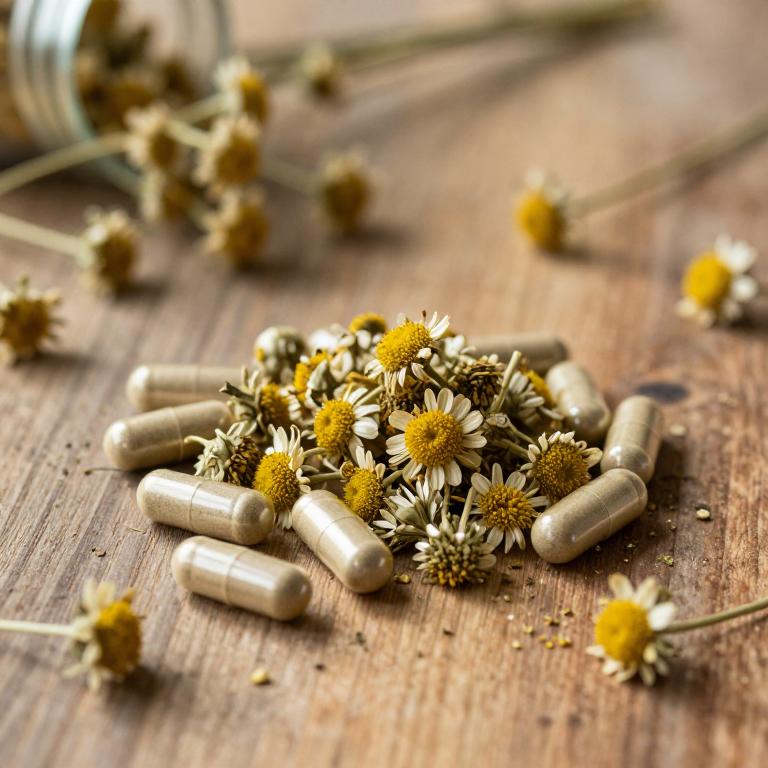
Chamomilla recutita, commonly known as German chamomile, is often used in herbal medicine for its soothing and anti-inflammatory properties.
Herbal capsules containing chamomilla recutita are sometimes recommended for relieving earache due to their potential to reduce inflammation and soothe irritation in the ear canal. These capsules are typically made from dried chamomile flowers and are available in various forms, including standardized extracts. While some studies suggest that chamomile may offer mild relief for ear infections or discomfort, it is important to consult a healthcare provider before using it, especially for children or individuals with allergies.
As a complementary therapy, chamomilla recutita capsules may help alleviate symptoms but should not replace professional medical treatment for persistent or severe ear pain.
7. English lavender (Lavandula angustifolia)
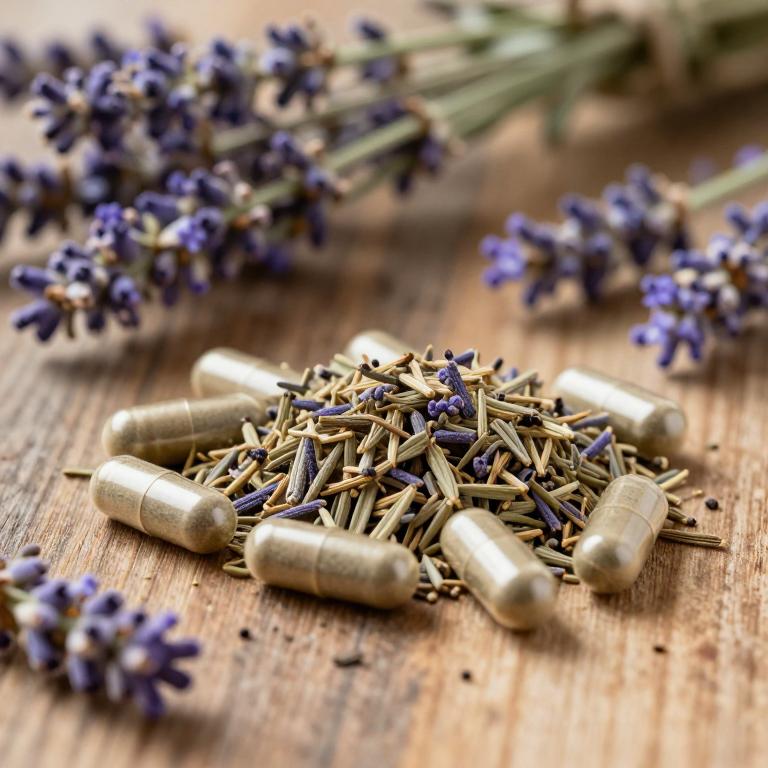
Lavandula angustifolia, commonly known as English lavender, has been traditionally used for its calming and anti-inflammatory properties.
Herbal capsules containing lavender are often used to alleviate symptoms of earache due to their potential soothing and analgesic effects. The essential oils in lavender, such as linalool and lavandins, may help reduce inflammation and pain in the ear canal. While some studies suggest lavender's effectiveness in minor ear infections, it is generally recommended to consult a healthcare professional before using it for persistent or severe ear pain.
These herbal capsules are typically considered safe for short-term use, though they may interact with certain medications or cause allergic reactions in some individuals.
8. Turmeric (Curcuma longa)

Curcuma longa, commonly known as turmeric, has been traditionally used for its anti-inflammatory and analgesic properties, making it a potential natural remedy for earache.
Curcuma longa herbal capsules contain curcumin, a bioactive compound that may help reduce inflammation and pain in the ear. Some studies suggest that curcumin can inhibit inflammatory pathways, which may alleviate symptoms associated with conditions like otitis media. However, while anecdotal evidence supports its use, more clinical research is needed to confirm its efficacy for earache specifically.
As with any supplement, it is advisable to consult a healthcare professional before using curcuma longa capsules for ear-related issues.
9. Garlic (Allium sativum)
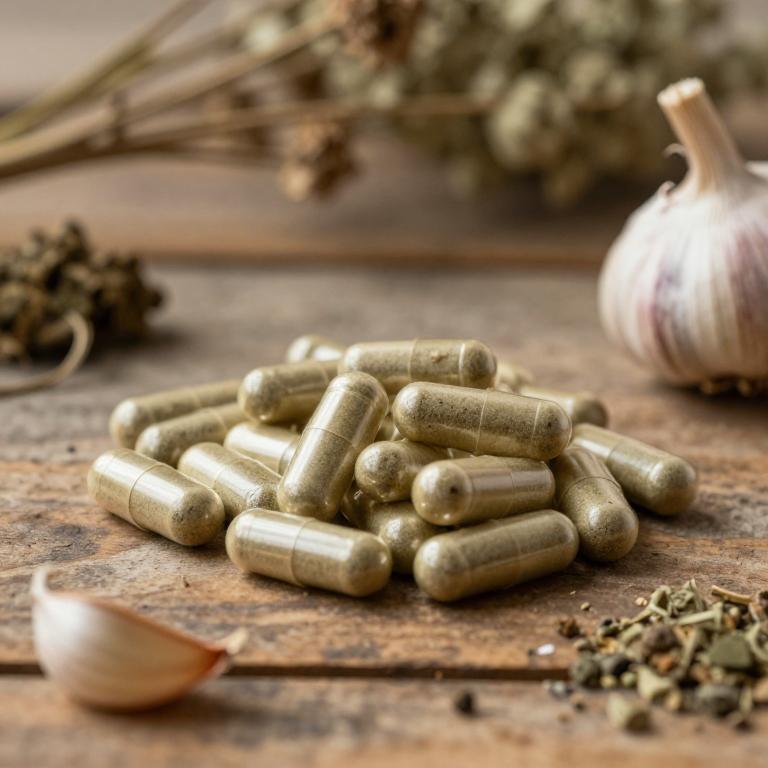
Allium sativum, commonly known as garlic, has been traditionally used for its therapeutic properties, including its potential to alleviate earache.
Herbal capsules containing garlic extract are often marketed as natural remedies for ear infections and pain, leveraging the antimicrobial and anti-inflammatory compounds found in garlic. These capsules may help reduce inflammation and combat bacterial or fungal infections that contribute to ear discomfort. However, while some studies suggest garlic's efficacy in certain conditions, its effectiveness for earache specifically requires further scientific validation.
It is important to consult a healthcare professional before using garlic supplements, especially if symptoms persist or worsen.
10. Black pepper (Piper nigrum)
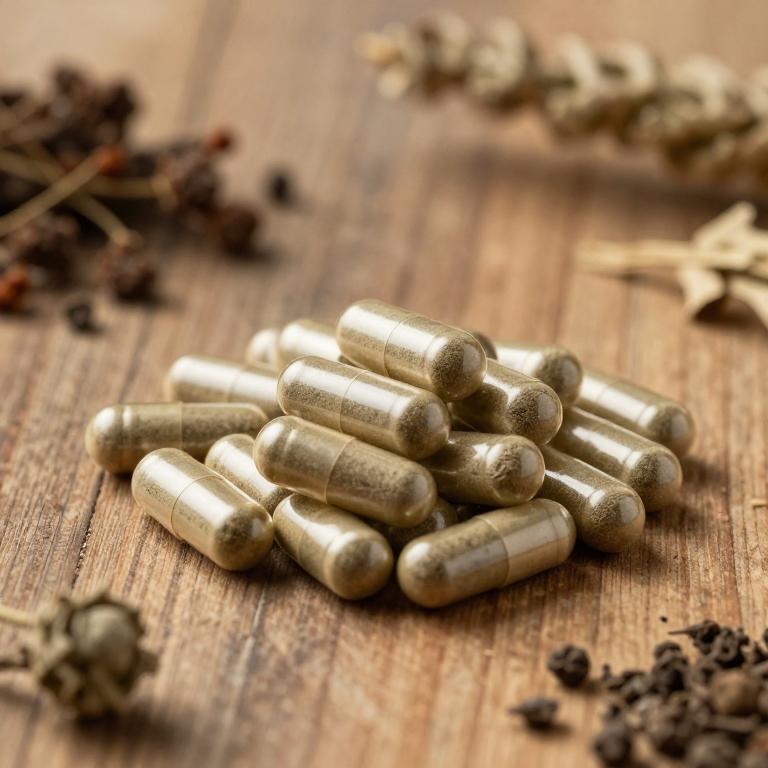
Piper nigrum, commonly known as black pepper, has been traditionally used in herbal medicine for its anti-inflammatory and analgesic properties.
While it is not a primary treatment for earache, some studies suggest that its active compound, piperine, may help reduce pain and inflammation associated with ear infections. Herbal capsules containing Piper nigrum are often used as a complementary therapy to support the body's natural healing process. However, it is important to consult a healthcare professional before using these capsules, especially if the earache is severe or persistent.
As with any herbal remedy, individual responses may vary, and it should not replace conventional medical treatments for ear conditions.